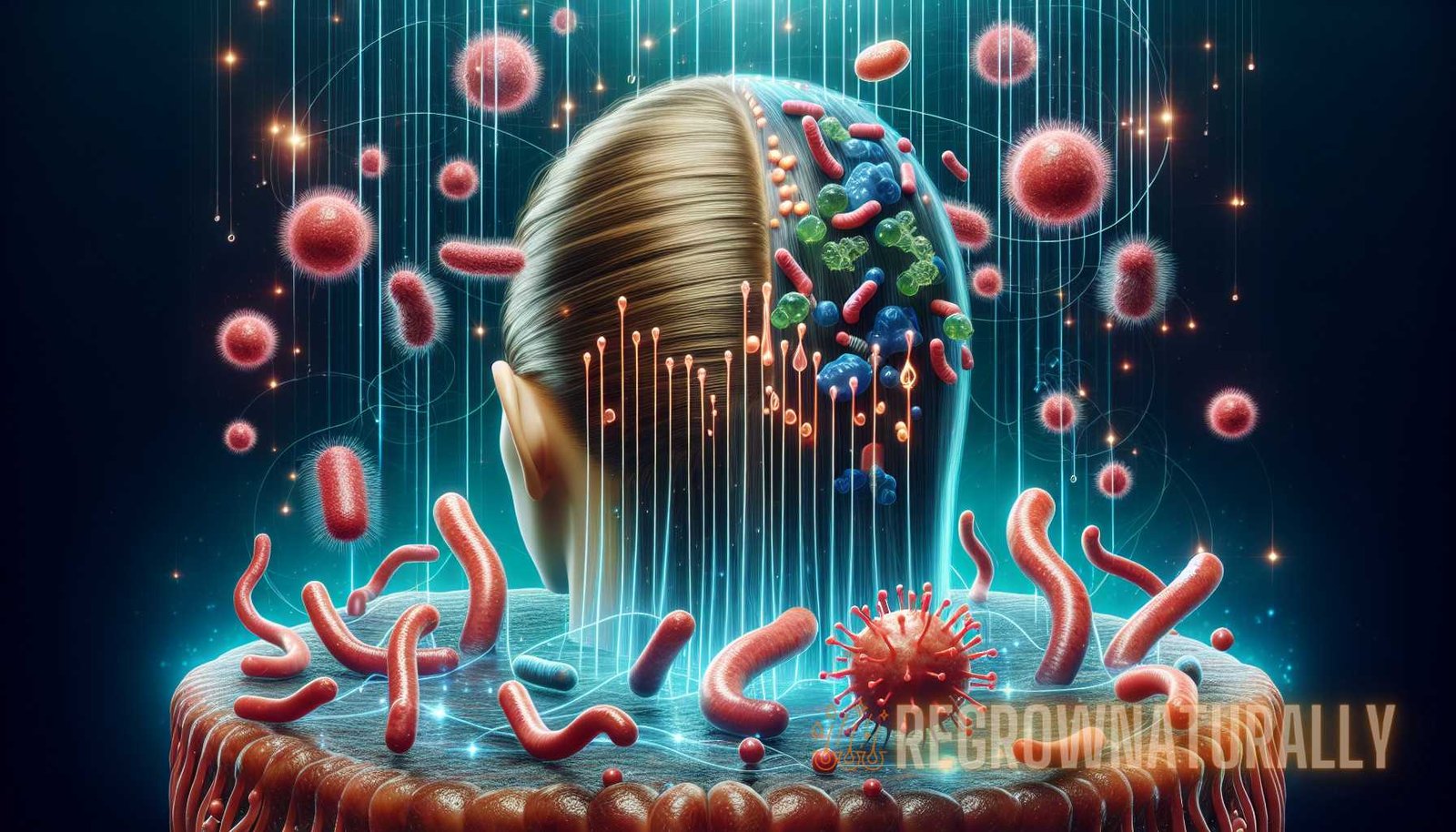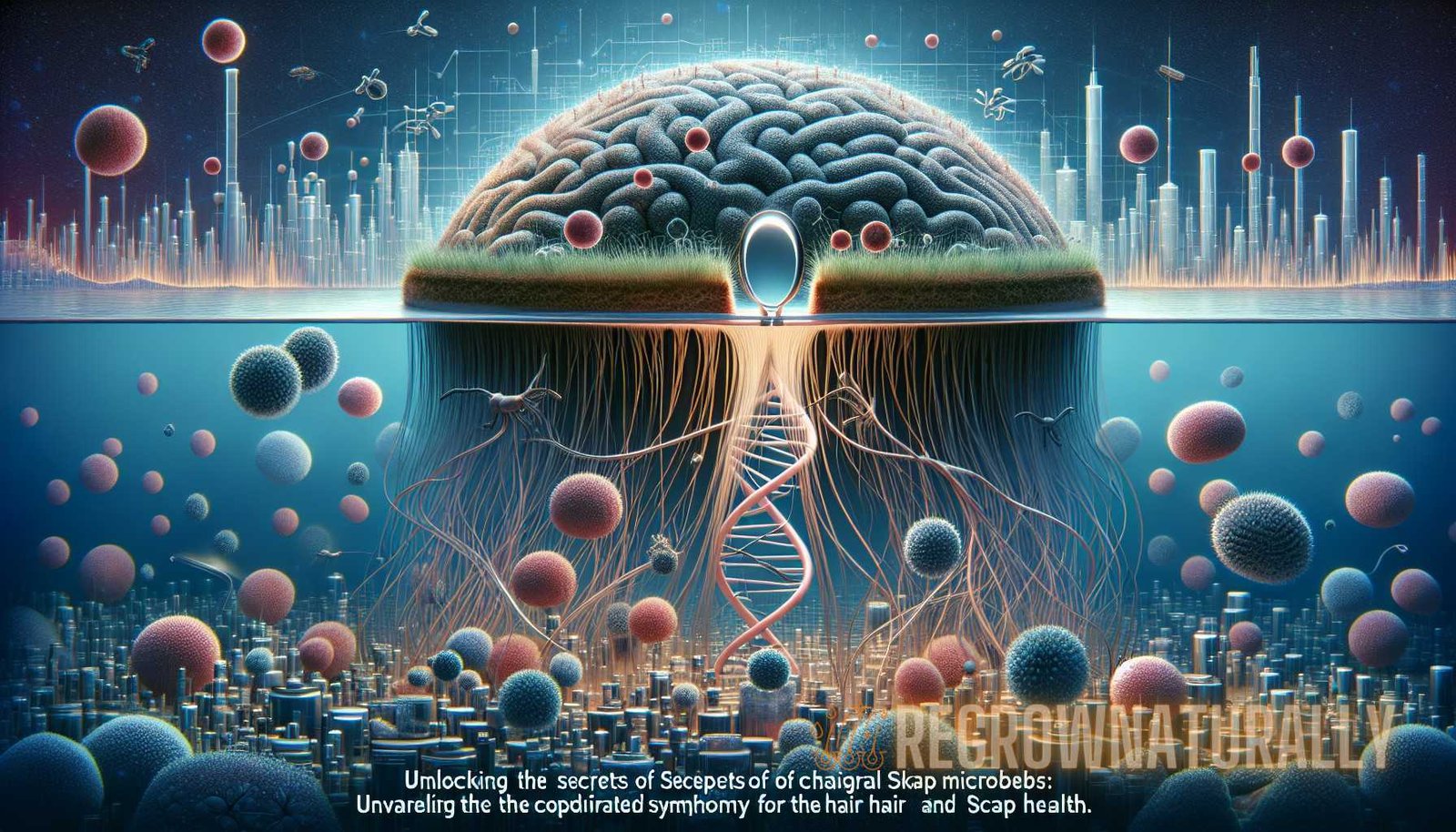Introduction
The scalp is home to a complex community of microorganisms, collectively referred to as the scalp microbiome. These microbes play a vital role in maintaining the health and well-being of the scalp and hair. The delicate balance and orchestrated interactions between various microorganisms within the scalp microbiome are essential for vibrant hair and scalp health. In this article, we will explore the concept of scalp harmony, uncovering the intricate web of interactions and the impact they have on the overall health of our scalp.Understanding the Scalp Microbiome
The scalp microbiome is a diverse ecosystem consisting of bacteria, fungi, and other microorganisms. These microbes coexist in a delicate balance, collaborating and competing with one another to maintain scalp health.The abundance and composition of scalp microbes can vary from person to person, influenced by genetics, environment, hygiene practices, and overall health. However, a healthy scalp is characterized by a balanced and diverse microbiome, where different microorganisms play crucial roles in maintaining its harmony.
The Role of Bacteria
Bacteria are the most abundant microorganisms in the scalp microbiome. They serve essential functions, including maintaining the scalp’s acidic pH, defending against harmful pathogens, and modulating the immune response.Some bacteria, such as Staphylococcus epidermidis and Propionibacterium acnes, produce antimicrobial peptides that help protect the scalp from invasion by harmful microorganisms. These bacteria also promote the production of natural moisturizing factors, such as lipids, which help keep the scalp hydrated.
The Influence of Fungi
Fungi, particularly Malassezia species, are another significant component of the scalp microbiome. While Malassezia is a natural inhabitant of the scalp, an overgrowth of this fungus can lead to scalp conditions like dandruff and seborrheic dermatitis.The balance between different species of Malassezia is crucial for scalp health. Recent research suggests that certain strains of Malassezia can trigger an immune response, leading to inflammation and scalp irritation. Maintaining the harmony of these fungi is essential to prevent scalp conditions and promote overall scalp health.
The Link Between the Immune System and Scalp Harmony
The immune system plays a vital role in maintaining the balance of the scalp microbiome. It helps regulate the growth of different microorganisms and prevents the overgrowth of harmful pathogens.Imbalances in the immune system can disrupt the finely tuned harmony of the scalp microbiome. Conditions such as autoimmune diseases, allergies, and chronic inflammation can lead to dysbiosis, an imbalance in the scalp microbiome, which can result in scalp disorders and hair loss.
External Factors Affecting Scalp Harmony
Several external factors can disrupt the harmony of the scalp microbiome, leading to imbalances and scalp issues. These factors include:- Poor hygiene practices: Infrequent washing or excessive use of harsh hair products can disturb the balance of the scalp microbiome.
- Environmental factors: Exposure to pollution, UV radiation, and extreme weather conditions can disrupt the equilibrium of the scalp microbiome.
- Diet and lifestyle: Poor nutrition and unhealthy lifestyle habits can impact the balance of the scalp microbiome, influencing the overall health of the scalp and hair.
- Medications: Certain medications, such as antibiotics and immunosuppressants, can disturb the balance of the scalp microbiome by altering the composition of microorganisms.

Maintaining Scalp Harmony for Vibrant Hair and Scalp Health
Achieving and maintaining a harmonious scalp microbiome is crucial for promoting vibrant hair and scalp health. Here are some strategies to help restore and maintain scalp harmony:Proper Scalp Care
Following a healthy scalp care routine is essential for maintaining scalp harmony. This includes:- Gentle cleansing: Wash your hair regularly using a mild shampoo to remove excess oil, dirt, and sweat without stripping away the natural protective oils.
- Proper drying: Ensure your scalp is completely dry after washing to prevent the growth of fungi that thrive in damp environments.
- Scalp massage: Regularly massaging your scalp stimulates blood flow, promotes lymphatic drainage, and helps maintain a healthy balance of the scalp microbiome.
- Avoiding harsh hair products: Choose hair products that are gentle on the scalp and free from harsh chemicals that can disrupt the balance of the scalp microbiome.
A Balanced Diet
The food we consume plays a significant role in maintaining scalp harmony. A balanced diet rich in essential nutrients, antioxidants, and probiotics can help nourish both hair and scalp. Include foods such as:- Fruits and vegetables: Rich in vitamins, minerals, and antioxidants that promote scalp health and protect against oxidative damage.
- Fatty fish: Contains omega-3 fatty acids, which help reduce inflammation and promote scalp health.
- Whole grains: Provide essential nutrients and fiber that support overall health and wellbeing, including scalp health.
- Probiotic-rich foods: Foods like yogurt, kimchi, and sauerkraut contain beneficial bacteria that promote a healthy balance of the scalp microbiome.


